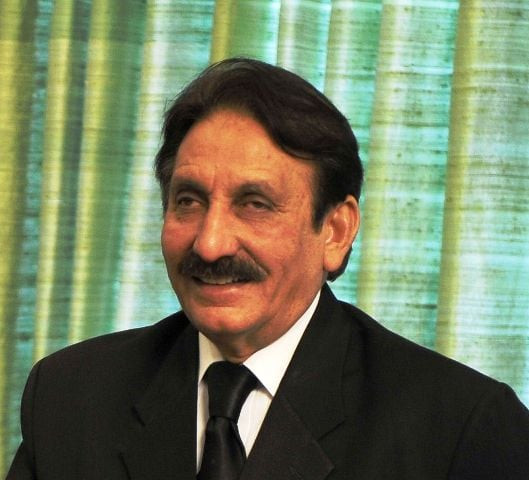At last, independence is found
Had there not been Justice Shah, Pakistan would have not seen the judicial assertiveness pursued by Justice Chaudhry.

File photo of Iftikhar Muhammad Chaudhry. PHOTO: FILE
The year was 1996, and the institution that we so widely look to today – for reasons good or bad – was headed by Jusitce Sajjad Ali Shah.
The then Chief Justice of Pakistan had a problem: the institution he was heading had long functioned as an appendage of the Executive and hand-maiden of the Establishment – and he wanted to change that.
His subsequent decisions and judicial assertiveness, however, did not go well with two successive democratic governments of Benazir Bhutto and Nawaz Sharif. It was under his tenure that the Supreme Court was stormed by marauding and angry activists of the Pakistan Muslim League-Nawaz (PML-N).
Having earned the ire of the two elected prime ministers, he finally fell prey to the machinations of some brother judges and was shown exit unceremoniously. It, however, goes to his credit that he sowed the seeds of the freedom of the judiciary though not allowed to reap its harvest. But he definitely left behind a testament to help his successors tread on the path of judicial independence. Despite his exit, it would not be the last we would hear of his mission, and his specter would rise again.
Fast forward one decade, and one of his successors had a similar problem – except, this time, the Chief Justice, a man named Iftikhar Muhammad Chaudhry, would not go silently. The rest, as they say, is history.
It is safe to assume that had there not been Justice Shah, Pakistan would have not witnessed the judicial assertiveness and activism so religiously pursued by Justice Chaudhry.
There are conflicting opinions about Justice Chaudhry’s recourse to public interest litigation while repeatedly invoking the suo motu powers.
He has often been censured by his detractors for leading the apex court on a confrontational course while transgressing its constitutional limits. Justice Chaudhry’s love for populism gives credence to such assertions. But could he be otherwise?
Re-born on March 9, 2007, Justice Chaudhry galvanised the lawyers, media and the civil society at large with his defiance before General Musharraf and an array of military commanders gathered to pressurize and to get an ‘instrument of surrender’ signed by him. And when he came out of the safe bunkers of the General Headquarters undaunted, he was a man transformed completely and so sure of his role as catalyst of change in days to come. And the discontent and resentment witnessed subsequently on the streets of all major towns and cities of the country could only be captured by paraphrasing an Urdu couplet from Jan Nisar Akhtar:
Harbinger of a violent Revolution
These moments of defiance are,
Hearken! How the full-throated
Nays overtake Ayes so mellow.
Emboldened by the mass frenzy he himself had inspired, Justice Chaudhry probably felt more answerable to public aspirations and expectations than anything else.
It is commonly argued that the over reach of the Supreme Court under the stewardship Justice Chaudhry was in conflict with the principles of trichotomy of power enshrined in the Constitution of Pakistan. Yet it can also be argued that this over reach was necessitated by the short-comings of the governance and the mal-functioning of the legislature and the executive. It was this pro-active role of the apex court that torpedoed the false notions of impunity which had since long been enjoyed by certain institutions and individuals and made them answerable for their deeds and actions before the judiciary and Parliament.
Now that Justice Chaudhry leaves the august office today (December 11), it is unlikely that the apex court will roll back on the paradigm shift so laboriously executed about by him and started by Justice Shah.
The crescendo might have gone but the ensuing cadence will probably be more meaningful.
Published in The Express Tribune, December 11th, 2013.


















COMMENTS
Comments are moderated and generally will be posted if they are on-topic and not abusive.
For more information, please see our Comments FAQ